True or false?
An argument cannot be true or false
True: only the sentences that make up an argument can be true or false.
How many circles would be required in a Venn diagram for the following argument form?
1. If P, then Q
2. P
C. Q
Two: one for P, and one for Q
Which one is Modus Ponens, A.K.A. "Affirming the Antecedent"?
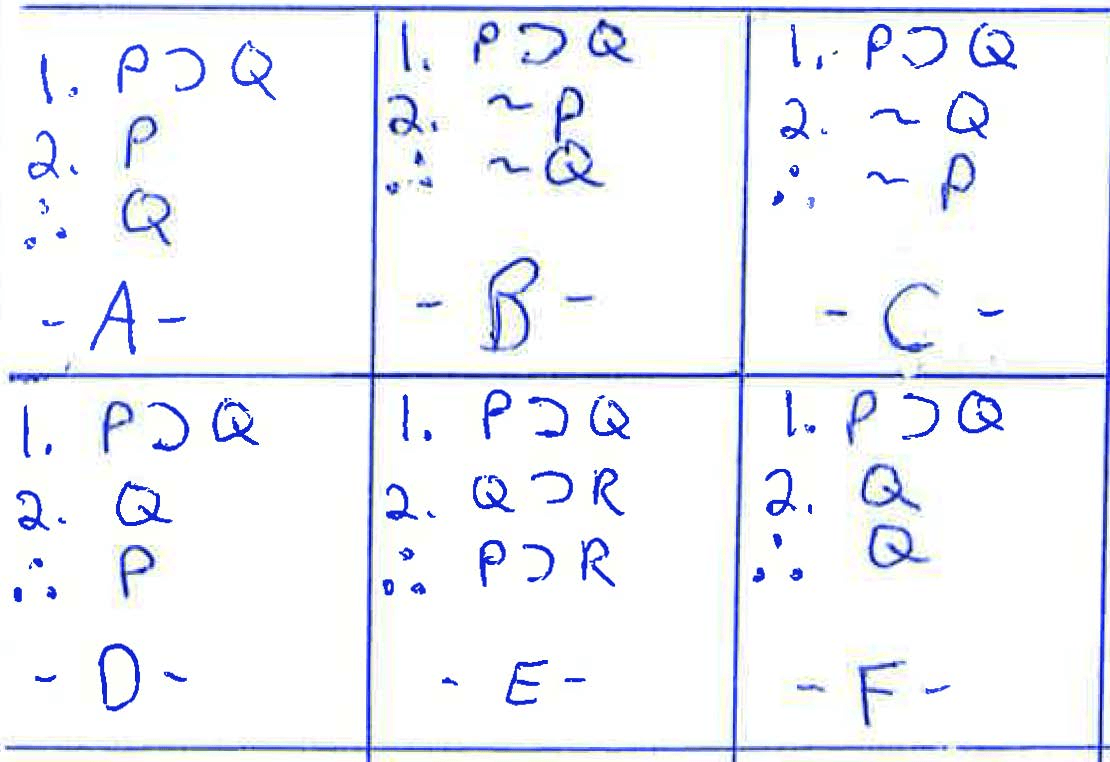
A
How many conclusions can an argument have?
One
Which is the correct diagram for the statement "Not Q"?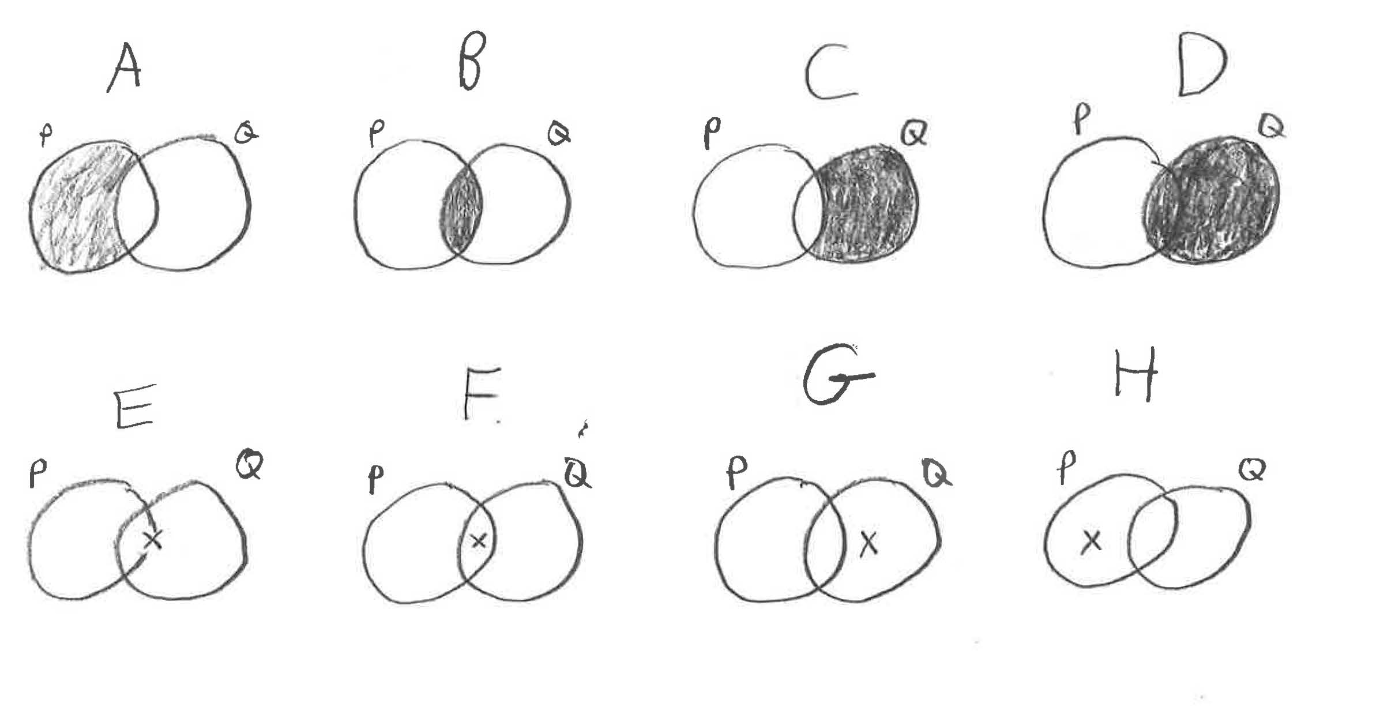
D
Which one is Modus Tollens, "Denying the Consequent"?
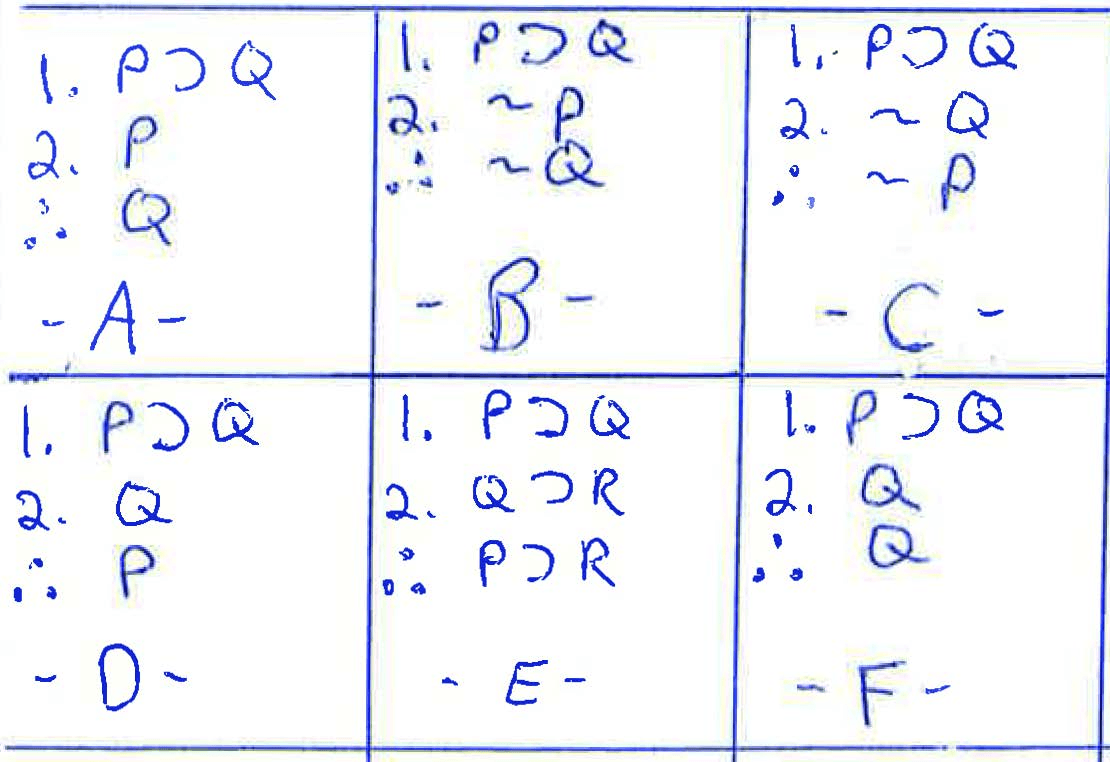
C
Which one is the antecedent in "If P, then Q"?
P
Which of the following is the correct diagram for the statement "If P, then Q"?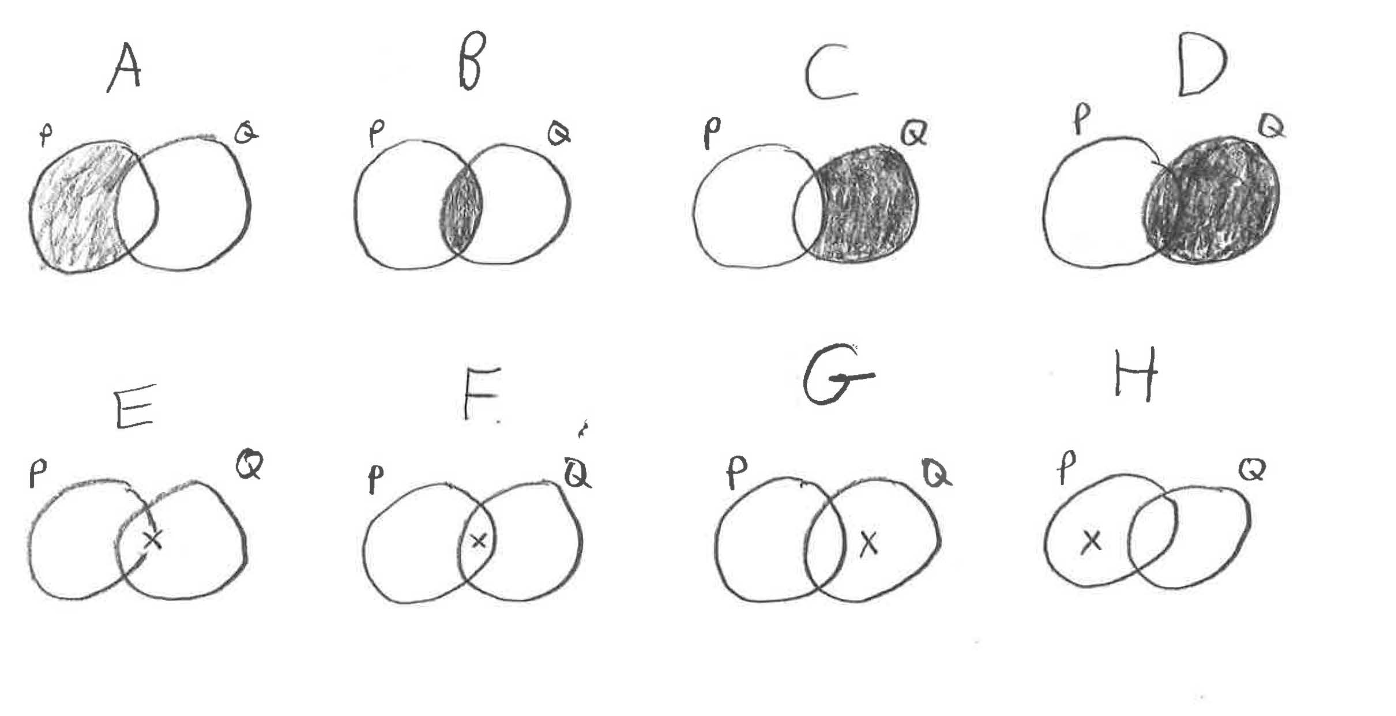
A
Which one is "Denying the Antecedent"?
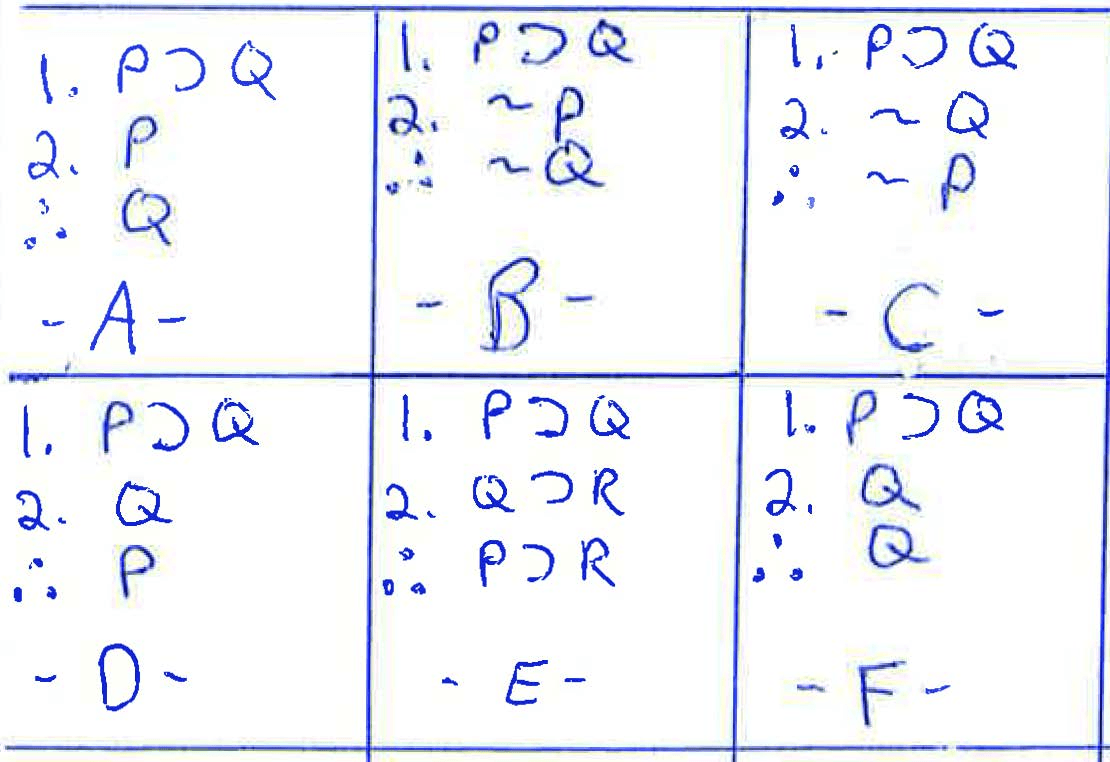
B
Define the word "premise."
A sentence that is meant to support the conclusion of an argument.
Which is the correct diagram for the statement, "P"?
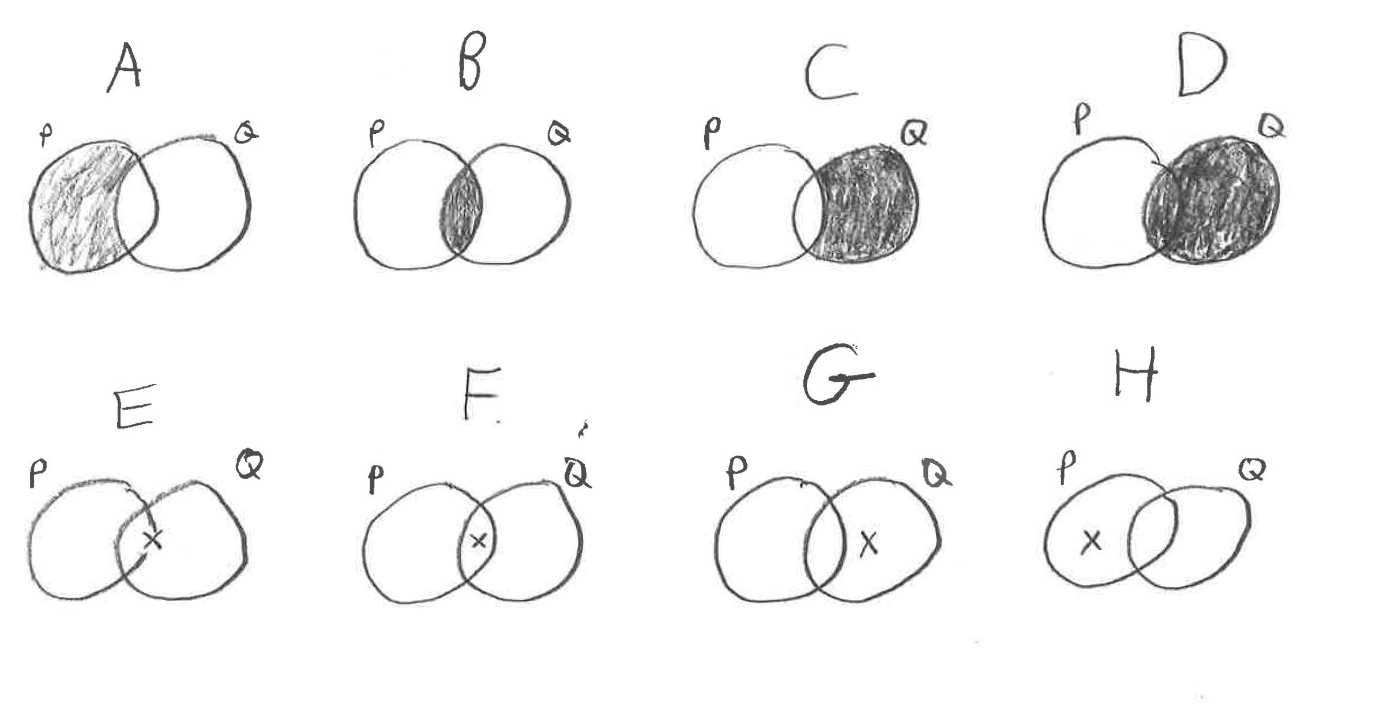
E
What should Premise 2 say in "Affirming the Consequent"?
Q
In a valid argument, it is impossible for the premises to be [. ] and the conclusion to be [. ] at the same time.
True, False. A valid argument guarantees that its conclusion is true as long as all its premises are true.
Super Challenge Question!!!
Which diagram would represent the statement, "If P, then not Q, and if Q, then not P"?
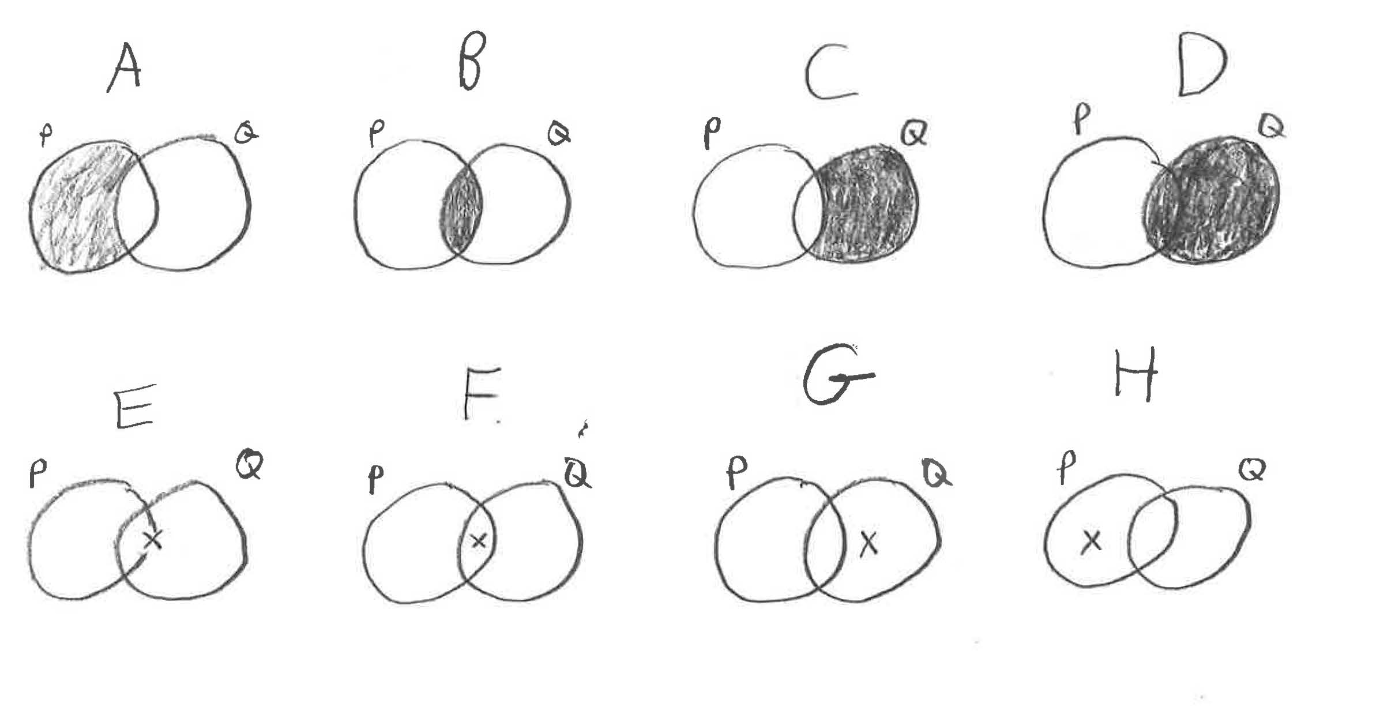
B
Name all valid forms!!! Here is a freebie: F is valid.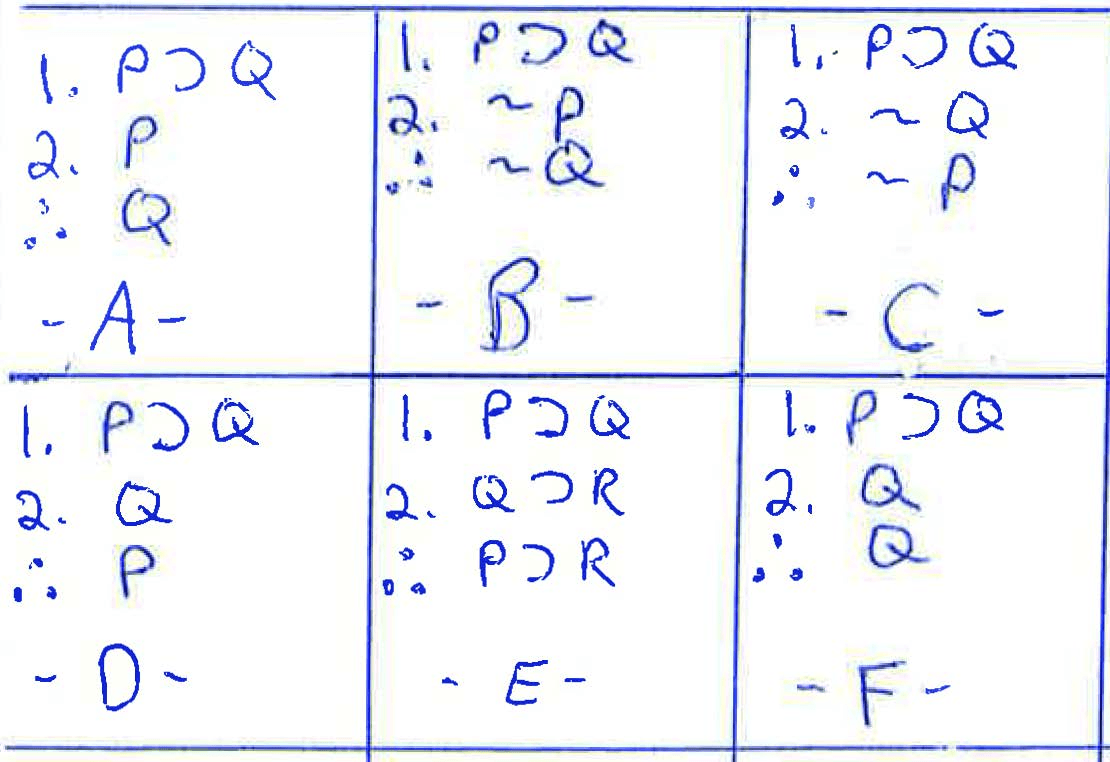
A, C, E, F